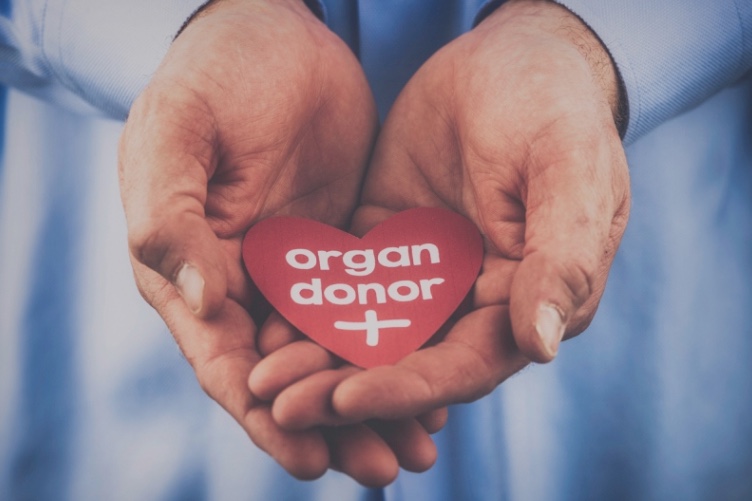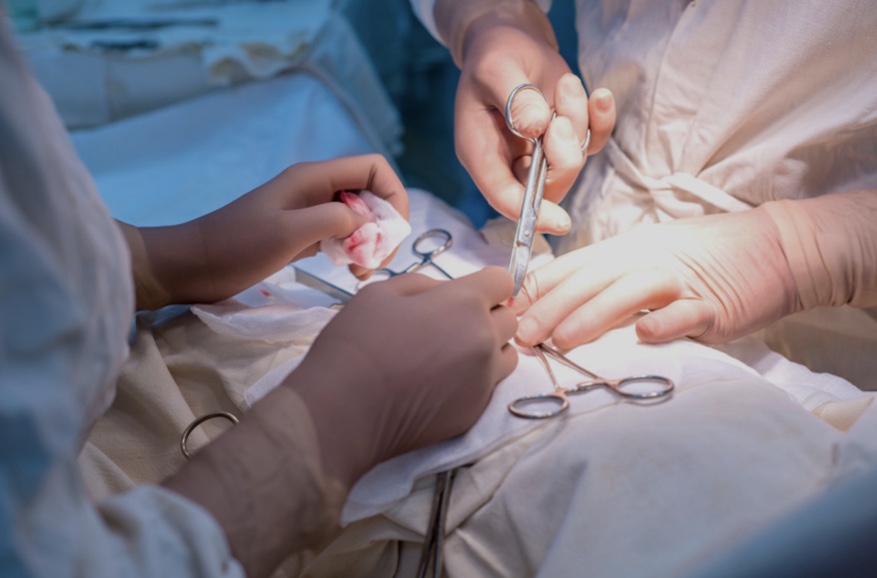Text by Henrylito D. Tacio
Photos from Istock, New York Post, and Facebook
If you are healthy and suddenly you are facing inevitable death, will you be willing to share some parts of your body so that those who get them can have a second chance at life?
Thirteen years ago, Davao firefighter Louie S. Puracan went to a hospital for his regular medical checkup. The doctor became cautious when he noticed the creatine level of the 41-year-old patient was increasing.
The doctor talked with him as he wanted to find out if what he was assuming was right. Puracan disclosed during the conversation that arthritis started to knock him out when he was 30. To get rid of the agony, he resorted to taking pain relievers.
Hearing the revelation, the doctor told him that most pain relievers can cause kidney disease. He advised the patient to undergo a glomerular filtration rate (GFR) to measure the level of his kidney function and determine the stage of kidney disease at the National Kidney and Transplant Institute (NKTI) in Quezon City.
“The result caused me sleepless nights,” he recalled. “My kidney function’s rate was 60% and it was irreversible. Upon hearing that diagnosis, my world seemed to collapse. The only thing doctors could do was to delay the progression.”
In 2016, when the result of his GFR test was placed at 21%, his doctor endorsed preemptive transplant. “She didn’t want me to undergo dialysis as it would entail more expenses on my part,” Puracan said. “She advised me to look for a possible kidney donor as soon as possible.”
By this time, Louie was getting weak and felt catching his breath. Family members and relatives knew the situation, and so a clan meeting was held in his hometown in Bansalan, Davao del Sur. Four cousins and his adopted sister volunteered to be his donor.
In January 2017, the doctor started doing the laboratory work for crossmatching. Here, blood from the donor and recipient are mixed. If the recipient’s cells attack and kill the donor cells, the crossmatch is considered positive. This means the recipient has antibodies “against” the donor’s cells. If the crossmatch is negative, the pair is considered compatible.
His adopted sister, Blessyn, then 30 years old and married with three children, was a perfect match for Puracan. He had his transplant operation on May 16, 2017, which was successful.
“I feel better now,” admits Puracan, now chief of the Bureau of Fire Protection. “I’m back to my work but mindful of my diet. I’m so happy that the Lord extended my life leading me to the right people, my nephrologist and the transplant team. And to my sister, who shared her life with me by giving one of her kidneys.”
Blessyn’s generosity saved the life of her brother. It is inspiring but, sadly, not typical. Records from the Department of Health (DOH) show at least one Filipino dies every hour from kidney failure, which is considered the ninth leading cause of death in the country. Some 10,000 Filipinos need kidney transplants from donors every year.
The situation is likely to get worse. As people live longer, organ diseases and health problems like diabetes – one of the main causes of kidney failure – are expected to rise, creating even greater demand for organ donations.
Data from the World Health Organization (WHO) showed that deaths caused by various end-stage organ diseases involved up to 230,000 Filipinos in 2017. “This may have been prevented by organ transplantation,” Health Secretary Francisco T. Duque III was quoted as saying. “Unfortunately, organ donation from brain dead patients remains dismally low in the Philippines.”
So much so that during the time of President Fidel V. Ramos, the last week of June was declared as the “National Organ and Blood Donation Awareness Week” to encourage blood and organ donation and raise awareness about it.
In 2020, Dr. Francisco Escueta-Sarmiento, manager of the Philippine Organ Donation and Transplantation Program, said that there are over 500,000 people who need tissue or organ donation.


Most of these people are having problems with their kidneys. “Kidney transplantation is the best form of renal replacement therapy,” said NKTI Executive Director Dr. Rose Marie Rosete-Liquete. “Patients who receive a kidney transplant become fully rehabilitated and have optimal quality of life and the highest survival rate.
“For kidney donors, donating one kidney and living with one kidney generally does not affect life expectancy and quality of life and, more importantly, they help save lives,” Dr. Rosete-Liquete added.
To think, there are reputable doctors in the country that can perform organ transplantation, the only treatment for end-stage organ failure. “We have the expertise to save more lives, but many patients die because of lack of available donor organs,” laments Dr. Antonio Cayco, nephrology chief at the Makati Medical Center. “It is a tragedy for everyone.”
“Every day, people die waiting for a suitable organ donor,” Dr. Enrique Ona, president and chairman of Kidney Foundation of the Philippines. “The selfless act of organ donation can save lives. Let us all work together to raise awareness and encourage more Filipinos to give of themselves….”
The Organ Donation Act of 1991 updates the 1949 Act to legalize permissions to use human organs. Under the new legislation, each individual can donate all or any part of his or her body by way of legacy or will. The members of the family may also authorize such a donation in the absence of contrary intention by the decedent.
Despite this law, organ donation is still relatively low. One major reason is that the relatives of people who have died simply haven’t been asked. “Doctors and other health professionals are reluctant to bring the subject of donation to the bereaved family,” Dr. Ona told this author when he was still NKTI chief transplant surgeon. “In some instances, they do not think of organ donation when brain death occurs in their patients.”
Another reason is fear. “There is a fear among the living that organ donation (kidney, for instance) might make them weak, shorten their lives, and affect their sexuality or child-bearing,” pointed out Dr. Ona.
Then, there’s religion. Being a Catholic country, many Filipinos believe that donating organs would mean they would be “incomplete” – thus would be unable to ascend to heaven once they die. That simply is a myth.
There are also those who think that a donor won’t be saved by a doctor. “Just because you are a donor doesn’t mean that physicians would see you as a cadaver with many organs, ripe for the picking for their patients,” an insider explained. But that’s not the case, as doctors are required to swear the Hippocratic Oath.
Some people believe that organ donation will disfigure a dead person and delay his funeral. One doctor offers this explanation: “The organs are removed in a sterile operation undertaken by skilled surgeons. The donor is treated with the utmost respect and dignity. When the procedure is finished, the wound is closed, just as in any other operation. The entire process is done quickly to preserve the organs and will therefore not delay a funeral.”
Doctors who perform organ transplantations do not become involved until all efforts have been made to save a patient’s life, the patient has been declared brain-dead, and consent for organ and tissue donation has been confirmed. “For a patient to be an organ donor, he has to be confirmed brain-dead by two medical specialists,” Dr. Ona said.
Confusion about brain death among the families of potential donors, doctors, and hospital administrators is another hindrance to donation of organs. To grieving loved ones, the person looks alive. “People think there might be a miracle, so they hold on,” one doctor contends.
The Philippines has passed the Organ Donation Act of 1991, which authorizes “the legacy or donation of all or part of a human body after death for specified purposes.”
The United Nations health agency says, “the procurement of organs for transplantation involves the removal of organs from the bodies of deceased persons.” Human transplantable organs include the kidneys, liver, lungs, heart, intestines, and pancreas, in addition to human tissues such as eye tissues, bones, skin, and blood vessels.
A news report from Philippine Daily Inquirer said that kidneys and livers are the only ones that are transplanted from donors with beating hearts who have been declared brain dead. The only organs harvested after death for transplantation, it added, are the eyes.
Be a hero even after your death by donating your organs, advocates urge. “Organ donation saves lives and it is very important that every person has the power to save a life by becoming an organ, tissue or eye donor,” says Dr. Teodoro Herbosa, former undersecretary of health. “It is a noble gift because you can give someone a second chance at life.”
The health department is advocating and conducting educational campaigns on deceased organ donation. “We recognize the noble and altruistic act of saving a life through committing one’s organs or tissues upon one’s death,” Dr. Duque pointed out. “This can be done by signing up as organ donor cardholders and providing consent to organ donation.”
“But signing a donation card isn’t enough,” stressed Dr. Ona. “Potential donors have to tell their families of their wishes.” Doing so takes much of the pressure off both the family and the hospital’s transplant coordinator at a very difficult time.
In addition, unless a donor’s family agrees with their loved one’s wishes, surgeons will not perform the process. “Even if the brain-dead patient had signed a donation card before, we still ask the consent of the nearest of kin before harvesting the organs,” Dr. Ona said.
There was this case of an overseas contract worker in the Middle East who was in a comatose condition. But before it happened, she told her friends that if something bad would happen to her, she wanted to donate her organs.
But it didn’t happen. Her family in the Philippines changed their location. By the time the hospital found them – in order to ask for their consent – it was already too late. The patient died a few days before the hospital traced where her family was living.
By the way, age doesn’t matter when it comes to organ donation. Organ donation is not limited to the young. “Anyone can donate, living or deceased,” pointed out Dr. Romina Danguilan, deputy director for Medical Education and Research of NKTI. Organ donation, however, depends on a person’s health and medical condition.
Until more people agree to donate, and doctors become more consistent about asking families for a loved one’s organs, seriously ill people will continue to die unnecessarily. “We may be the cure for the problems these people are facing,” says Marianne, who donated one of her kidneys to her brother. “Organ donation plus God’s intervention equals life extension.”

